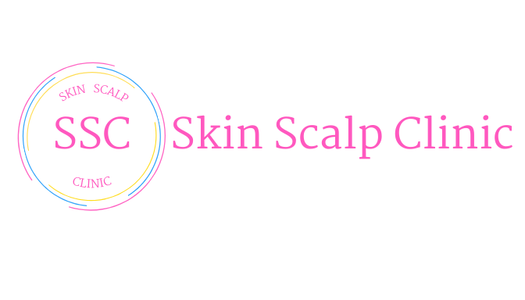Stop “Training” Your Hair. Start Washing It.

Share
Lately, I’ve had a flood of clients telling me they’re “training their hair” by not washing it. And honestly—I don’t know what’s happening. This trend is suddenly everywhere, like Britney Spears and the Backstreet Boys in the 90s. Back then, every teenager wanted to be like them. I get that. But trying to “train” your hair to become less oily by skipping washes? That’s not trendsetting—it’s just bad science.
Let me say it clearly: you cannot train your scalp to produce less oil by washing your hair less often. That’s not how your body works. In fact, it’s the opposite. You’re not helping your scalp or your hair—you’re actually creating conditions that may harm them.
So What Should You Do Instead?
Forget the myths. You don’t need expensive therapies first. What you do need is to wash your scalp—yes, your scalp, not just your hair—as often as it needs it.
-
Every day? Wash it.
-
Every second day? Wash it.
-
Even every third day is okay.
But don’t go longer than that. Your scalp deserves the same hygiene as the rest of your body.
Why Is This So Important?
Each hair grows from a mini factory in your skin called a hair follicle. It's actually one of the smallest organs in your body, right up there with the pineal gland and the tiny stirrup bone in your ear. And it's incredibly busy.
Every hair follicle is intimately connected to a sebaceous gland that constantly produces sebum—a natural oil meant to protect both the follicle and the new hair strand. You cannot “turn off” these oil glands. They work 24/7, just like the follicle producing your hair.
So when you stop washing your scalp, you’re not helping. You’re letting oil, sweat, skin cells, and product residue build up. And that doesn’t reduce oiliness—it creates the perfect environment for scalp inflammation, irritation, and even hair loss.
Imagine saying:
"I’ll just stop showering or brushing my teeth for a few days to train my skin and gums to be less oily or dirty."
Sounds ridiculous, right?
Well, it’s the same with your scalp.

What Really Happens When You Don't Wash?
When sebum sits on the scalp too long, it becomes fuel for bacteria and fungi that naturally live on our skin. Left unchecked, they multiply fast in this dark, warm, and oily environment.
That’s how issues like:
-
Folliculitis
-
Seborrheic dermatitis
-
Dandruff
-
Itchy scalp
-
And yes—hair loss
can begin.
Some of the usual suspects include:
-
Streptococcus
-
Staphylococcus
-
Malassezia (yeast)
-
Cutibacterium
These microbes are normal on the scalp in healthy amounts, but when you stop washing, it's like adding oil to a fire—they flourish and cause inflammation.
If You Have Oily Scalp, Something Else Might Be Going On
Excessive sebum production isn’t just about poor washing habits—it can be a sign of a deeper issue:
-
Hormonal imbalance
-
Poor diet
-
Wrong hair products
-
Stress
-
Or an undiagnosed scalp condition
That’s why oily scalp problems should be evaluated by a trichologist, sometimes in cooperation with a dermatologist or endocrinologist.
So Let’s Make a Deal
Next time you're tempted to skip washing your hair “to train it,” ask yourself:
Would I skip brushing my teeth for the same reason?
If the answer is no—then do the same for your scalp. Clean scalp = healthy hair.
There’s no shortcut.
Want to Know What You Should Do?
Stay tuned for my next article, where I’ll walk you through:
-
Why scalp exfoliation is a game-changer
-
What ingredients to look for (and avoid!)
-
Which shampoos I recommend (with specific examples)
-
Which serums to use—and why
-
The biggest dos and don’ts if you want to grow beautiful, healthy hair
Got questions or a topic you’d love me to cover?
Leave a comment! I’ll be answering them soon.
Source: 20 year of my experience and more than 6 years of formal education and loads of course.
